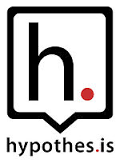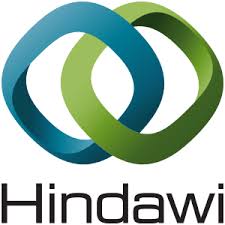Wiley
See the following -
Academic Journals: The Most Profitable Obsolete Technology In History
The music business was killed by Napster; movie theaters were derailed by digital streaming; traditional magazines are in crisis mode--yet in this digital information wild west: academic journals and the publishers who own them are posting higher profits than nearly any sector of commerce...
- Login to post comments
Annotating All Knowledge: What It Means and Why It’s Important
 Annotating All Knowledge is a coalition driven by the Hypothes.is Project involving over 40 scholarly publishers, platforms, libraries and technology partners. Scholarly publishing is undergoing a sea change. As governments and institutions strive to make the results of research more and more accessible, the publishing industry is adapting. Open Access was an important step towards authors providing unlimited access to their research, and Wiley has fully embraced this...
Annotating All Knowledge is a coalition driven by the Hypothes.is Project involving over 40 scholarly publishers, platforms, libraries and technology partners. Scholarly publishing is undergoing a sea change. As governments and institutions strive to make the results of research more and more accessible, the publishing industry is adapting. Open Access was an important step towards authors providing unlimited access to their research, and Wiley has fully embraced this...
- Login to post comments
Asia’s Leading Oncology Journal Cancer Science Adopts Open Access
From January 1, 2014, all newly published articles will be open access and free to view, download and share. Read More »
- Login to post comments
Browse Your Library’s e-Journals On Your Device With BrowZine
Review of BrowZine for iPhone, iPad, and Android...
- Login to post comments
Dutch Universities Dig In For Long Fight Over Open Access
Dutch universities have vowed not to soften their groundbreaking demands for publishers to permit all papers published by their academics to be made open access for no extra charge...
- Login to post comments
Elsevier Costs Too Much
When journals evolved from exclusive print formats into some variety of electronic hybrid, librarians valued the extra service their formats offered, and we justified paying more for them... Read More »
- Login to post comments
Gates Foundation Announces World’s Strongest Policy On Open Access Research
The Bill & Melinda Gates Foundation has announced the world’s strongest policy in support of open research and open data. If strictly enforced, it would prevent Gates-funded researchers from publishing in well-known journals such as Nature and Science...
- Login to post comments
Global Coalition Pushes for Unrestricted Sharing of Scholarly Citation Data
 This week a coalition of scholarly publishers, researchers, and nonprofit organizations launched the Initiative for Open Citations (I4OC), a project to promote the unrestricted open access to scholarly citation data. From the website: "Citations are the links that knit together our scientific and cultural knowledge. They are primary data that provide both provenance and an explanation for how we know facts. They allow us to attribute and credit scientific contributions, and they enable the evaluation of research and its impacts. In sum, citations are the most important vehicle for the discovery, dissemination, and evaluation of all scholarly knowledge"...
This week a coalition of scholarly publishers, researchers, and nonprofit organizations launched the Initiative for Open Citations (I4OC), a project to promote the unrestricted open access to scholarly citation data. From the website: "Citations are the links that knit together our scientific and cultural knowledge. They are primary data that provide both provenance and an explanation for how we know facts. They allow us to attribute and credit scientific contributions, and they enable the evaluation of research and its impacts. In sum, citations are the most important vehicle for the discovery, dissemination, and evaluation of all scholarly knowledge"...
- Login to post comments
How Open Source Builds Distributed Trust
 This distillation of collective experience allows what we refer to as distributed trust and is collected through numerous mechanisms on the internet. Some, like TripAdvisor or Glassdoor, record information about organisations or the services they provide, while others, like UrbanSitter or LinkedIn, allow users to add information about specific people (see, for instance, LinkedIn's Recommendations and Skills & Endorsements sections in individuals' profiles). The benefits that can accrue from these examples are significantly increased by the network effect, as the number of possible connections between members increases exponentially as the number of members increases.
This distillation of collective experience allows what we refer to as distributed trust and is collected through numerous mechanisms on the internet. Some, like TripAdvisor or Glassdoor, record information about organisations or the services they provide, while others, like UrbanSitter or LinkedIn, allow users to add information about specific people (see, for instance, LinkedIn's Recommendations and Skills & Endorsements sections in individuals' profiles). The benefits that can accrue from these examples are significantly increased by the network effect, as the number of possible connections between members increases exponentially as the number of members increases.
- Login to post comments
Initiative for Open Citations Making Great Progress
 It is enormously satisfying when a good idea captures the imagination and takes off and that’s precisely what happened with the Initiative for Open Citations (I4OC) over the past 6 months. Citations are the way that researchers communicate how their work builds on and relates to the work of others and they can be used to trace how a discovery spreads and is used by researchers in different disciplines and countries. Creating a truly comprehensive map of scholarship, however, relies on having a curated machine-readable database of citation information, where the provenance of every citation is clear and reusable. With the launch of I4OC that map, and the potential for anyone to use it to explore the scholarly landscape, comes much closer...
It is enormously satisfying when a good idea captures the imagination and takes off and that’s precisely what happened with the Initiative for Open Citations (I4OC) over the past 6 months. Citations are the way that researchers communicate how their work builds on and relates to the work of others and they can be used to trace how a discovery spreads and is used by researchers in different disciplines and countries. Creating a truly comprehensive map of scholarship, however, relies on having a curated machine-readable database of citation information, where the provenance of every citation is clear and reusable. With the launch of I4OC that map, and the potential for anyone to use it to explore the scholarly landscape, comes much closer...
- Login to post comments
International Science Organization Makes Research More Accessible To The Public
American Geophysical Union to Give Free Access to Journal Content through Public Libraries in Calif...
- Login to post comments
Nine Journals to Become Open Access Under Partnership Between Wiley and Hindawi
 This new collaboration will see nine Wiley subscription journals converting to open access starting in January 2017. Hindawi will take over the editorial and production workflow for each of the journals within the partnership, which will be hosted on the Hindawi website, allowing them to benefit from the publisher’s experience in publishing high quality journals on an open access basis. Hindawi (hindawi.com) currently publishes over 400 peer-reviewed journals covering a wide range of disciplines...
This new collaboration will see nine Wiley subscription journals converting to open access starting in January 2017. Hindawi will take over the editorial and production workflow for each of the journals within the partnership, which will be hosted on the Hindawi website, allowing them to benefit from the publisher’s experience in publishing high quality journals on an open access basis. Hindawi (hindawi.com) currently publishes over 400 peer-reviewed journals covering a wide range of disciplines...
- Login to post comments
Open Access 2015: A Year Access Negotiators Edged Closer to the Tipping Point
 It’s the year many negotiators got seriously tough on double dipping – charging for both the ability to read (via subscriptions) and for publishing (author processing charges, or APCs). Last year it was France getting tough on the toughest negotiator: Elsevier. This year, the Netherlands took it right to the brink of cutting Elsevier loose. It was summed up by a January headline: “Dutch universities dig in for long fight over open access.” Coming into the new year, other nations were taking up positions about the future they want to see too...Here’s a month-by-month roundup of some of the major action...
It’s the year many negotiators got seriously tough on double dipping – charging for both the ability to read (via subscriptions) and for publishing (author processing charges, or APCs). Last year it was France getting tough on the toughest negotiator: Elsevier. This year, the Netherlands took it right to the brink of cutting Elsevier loose. It was summed up by a January headline: “Dutch universities dig in for long fight over open access.” Coming into the new year, other nations were taking up positions about the future they want to see too...Here’s a month-by-month roundup of some of the major action...
- Login to post comments
Open Access — What Do Authors Really Want?
There’s no doubt that open access (OA) is becoming more and more popular with authors...So what do authors themselves think about OA? Does it affect where they choose to publish? What are their reasons for publishing – or not publishing – in an OA journal? The results of a recent Wiley survey provide some interesting answers. Read More »
- Login to post comments
Publishing And The POOC, Or, Why We Need Open Access
Isn’t everything up on the internet for free? Yes, most new books and articles appear in digital format, but NO-O-O they’re not (yet) mostly free. Libraries pay big bucks to license them, and the licenses require libraries to restrict access to narrow audiences (students, faculty, or people physically inside the library). Read More »
- Login to post comments